acute liver failure can cause cerebral edema and hepatic encephalopathy
- related: acute liver failure in the ICU
- tags: #literature #icu #GI
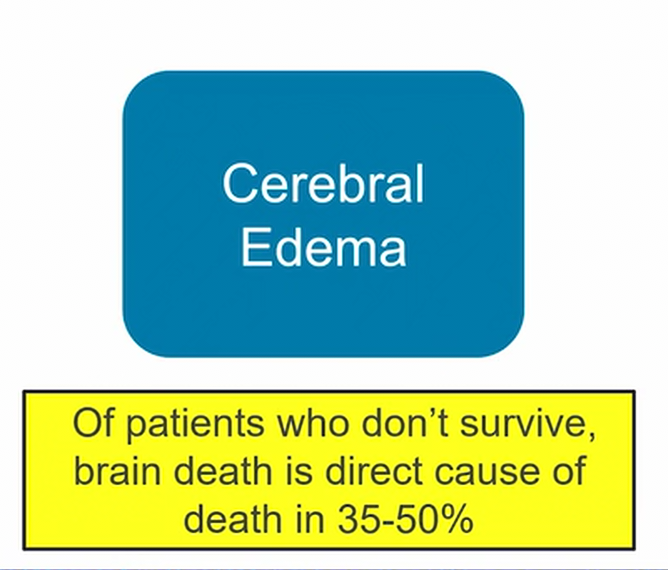
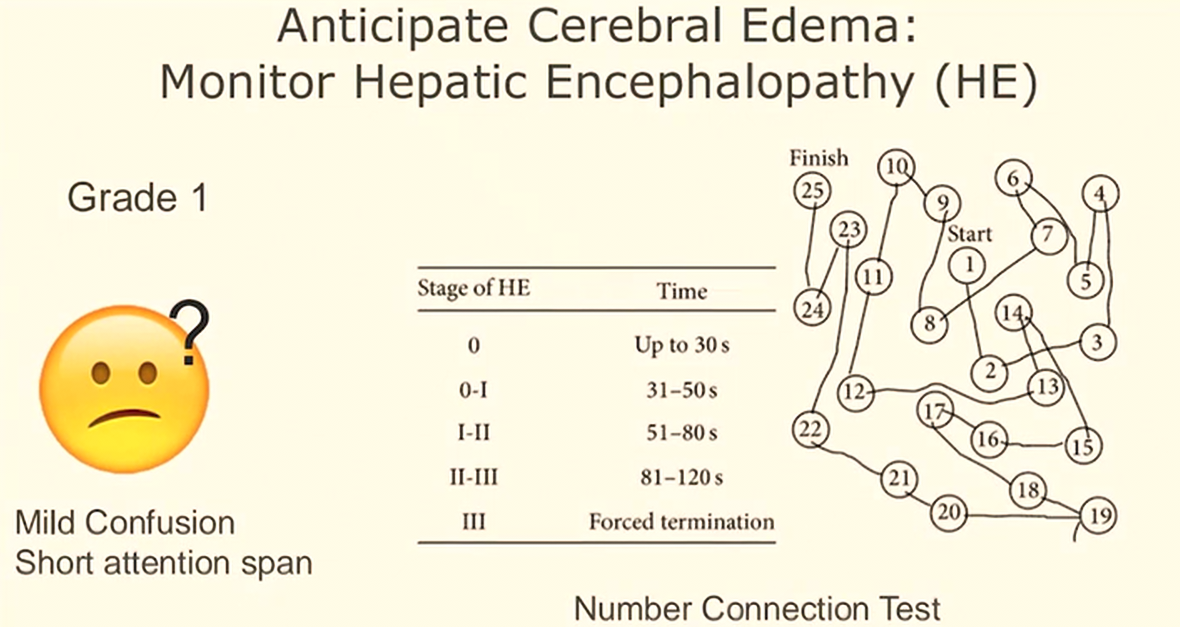
- number connection test used to track over time over shift or day
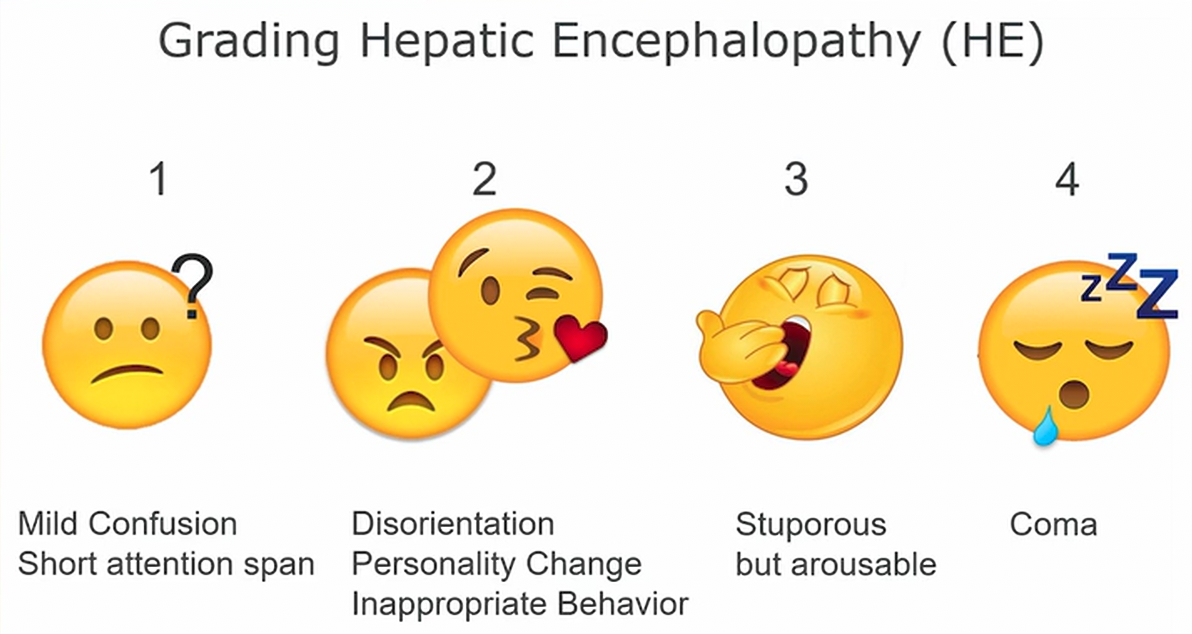
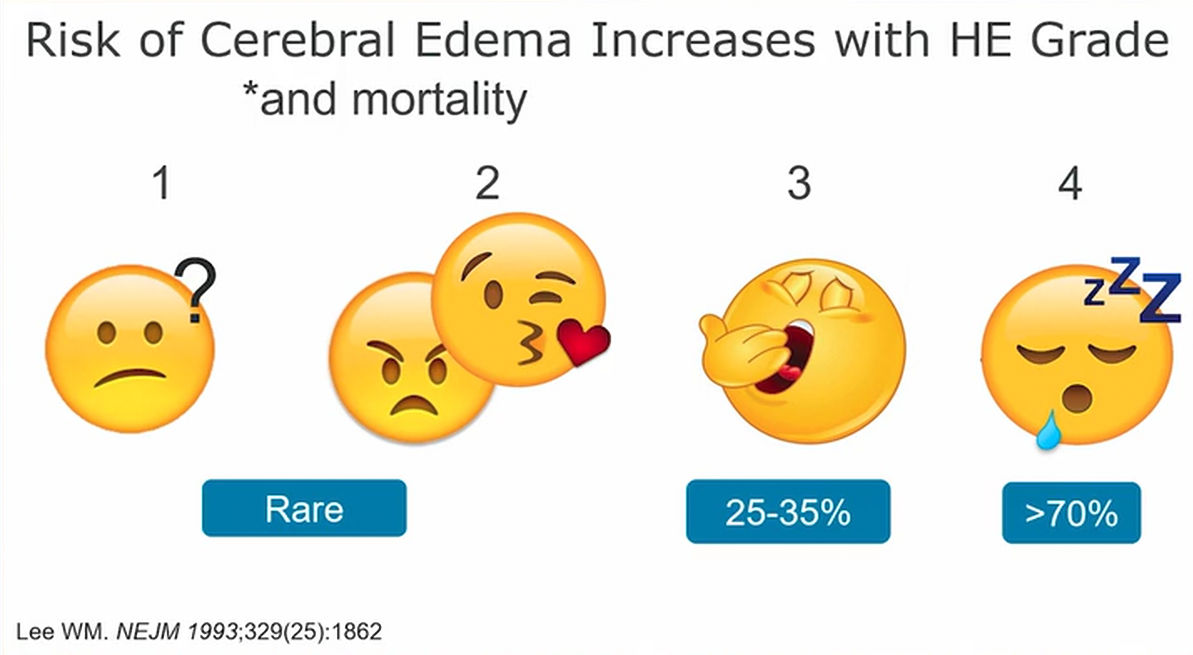
- grade 3 and 4 have higher risk of cerebral edema

- acute brain response to ammonia and toxins that cause glutamin activation in brain


- dialysis is needed

- lactulose with bowel distension risk
- acute only liver failure: lactulose does not improve survival
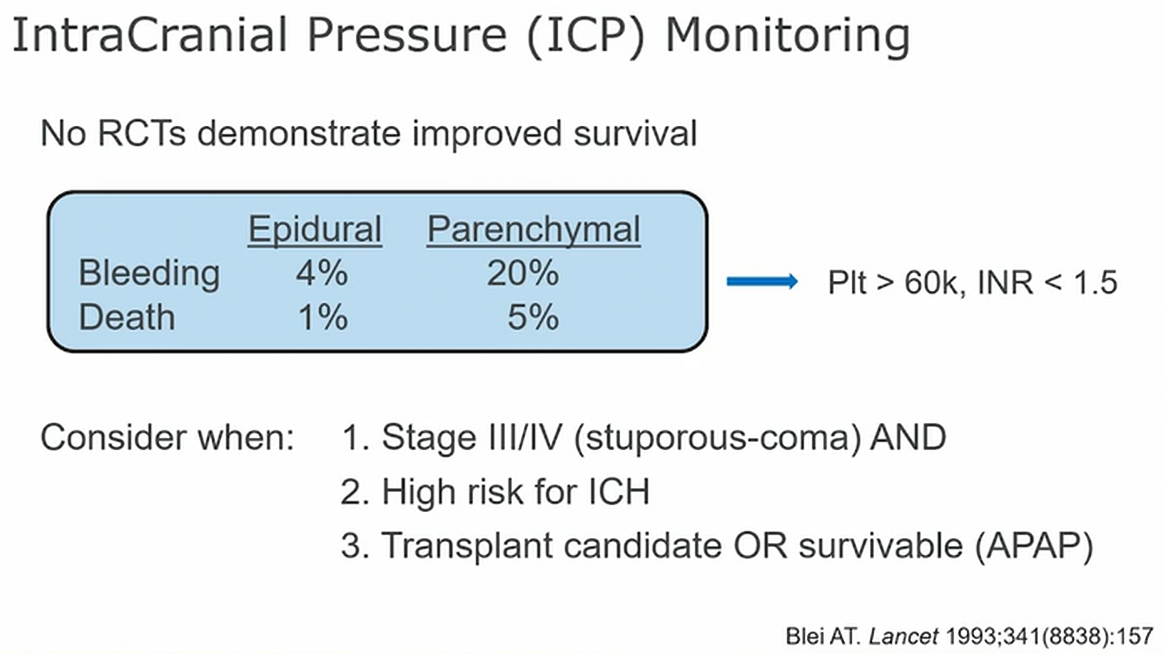
- No RCT showing routine practice for monitor
- In addition, have to replace coagulopathy
- only consider if they truly progress AND transplant candidate
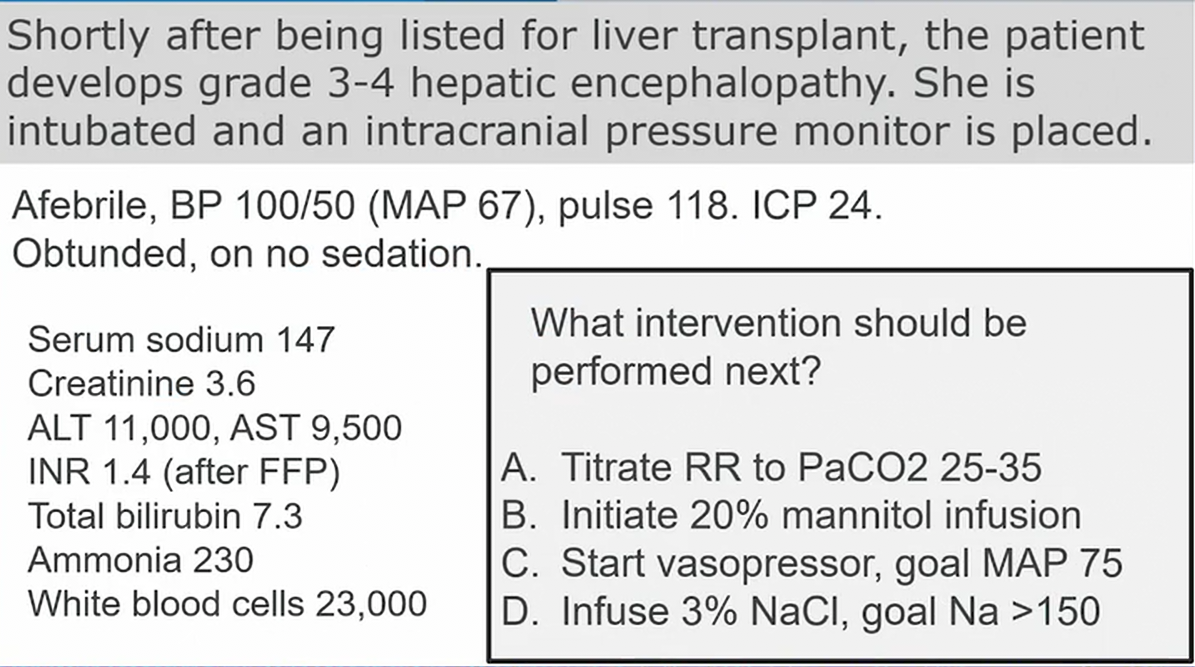
- vasopressor

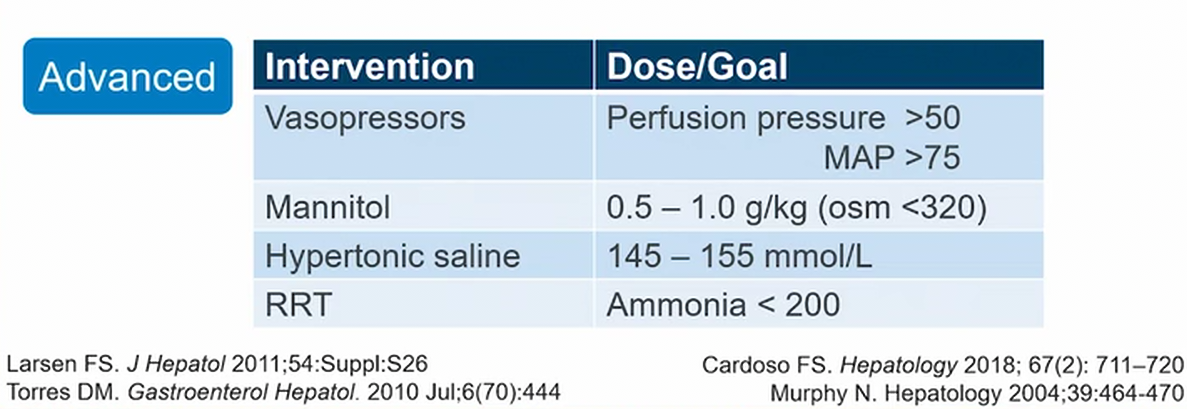
- standard guideline: increase MAP to target CPP (MAP - ICP) > 50
- use 2% instead of 3%?
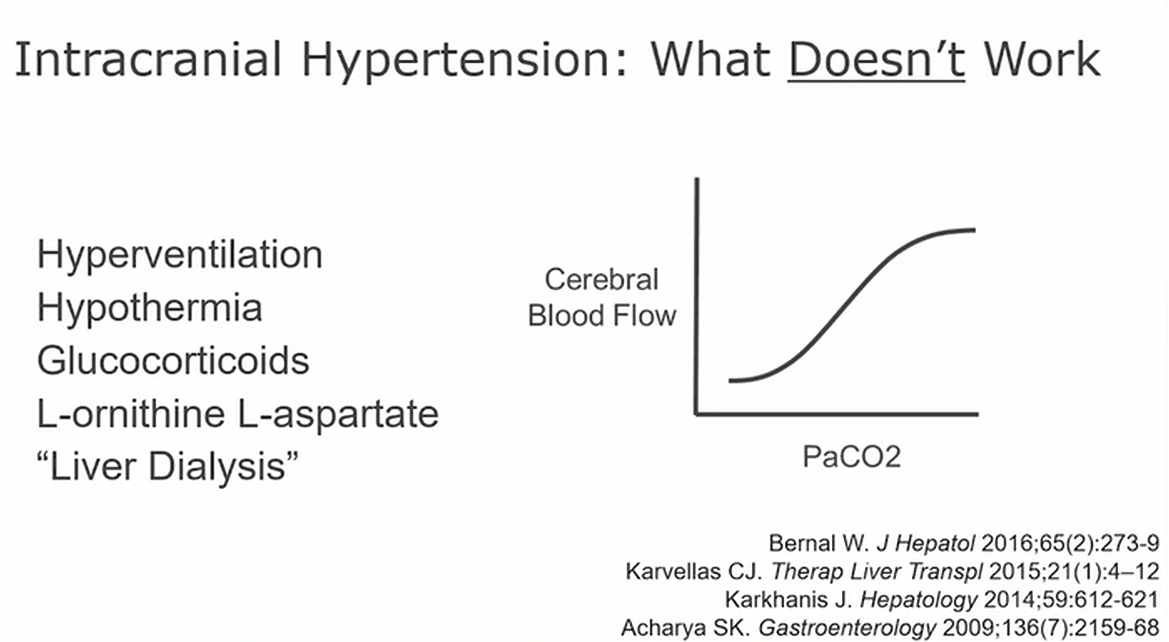
- hyperventilation only works acutely to cause cerebral vasoconstriction and not maintenance. Will get rebound hyperemia 1
Links to this note
-
- Differentiating between acute or chronic liver failure as etiology for hepatic encephalopathy is important because in acute liver failure, lactulose and rifaximin are not helpful (acute liver failure can cause cerebral edema and hepatic encephalopathy). In contrast, in acute on chronic liver failure, treatment includes both lactulose and rifaximin.
-
acute liver failure complications
- Biggest risk of death is cerebral edema: acute liver failure can cause cerebral edema and hepatic encephalopathy